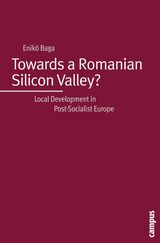
Effective Conservation is based on Jiménez’s experience managing conservation projects on three continents over thirty years. Jiménez offers a pragmatic approach to conservation that puts the focus on working with people—neighbors, governments, politicians, businesses, media—to ensure they have a long-term stake in protecting and restoring parks and wildlife. Jiménez guides readers through the practical considerations of designing, analyzing, and managing effective conservation programs. Chapters explore intelligence gathering, communication, planning, conflict management, and evaluation techniques, and include numerous text boxes showcasing examples of successful conservation projects from all continents. A companion website (islandpress.org/effective-conservation) includes additional case studies, expanded texts, and links to additional resources.
This highly readable manual, newly translated into English after successful Spanish and Portuguese editions, provides a groundbreaking and time-proven formula for successful conservation projects around the world that bring together parks, people, and nature.

Mexico's export assembly industry has been the object of an intensely polarized debate. While some observers laud the maquiladora industry as a source of much-needed employment and foreign exchange for Mexico, others berate it as a vehicle for exploitation and pollution. Exports and Local Development attempts to transcend the dichotomy by taking a practical look at how this export industry could be better utilized to promote local development.
Using data gathered from a field survey of more than seventy maquiladora plants, Patricia A. Wilson compares the Mexican industry with its more successful Asian counterparts to determine how policy initiatives might help Mexico use local linkages to tap the potential of both local and foreign-owned assembly plants.
The study grounds its analysis of the maquiladora industry in leading-edge issues including the rise of free trade, changing corporate sourcing strategies, the competitiveness of U.S. manufacturing, the Japanese challenge, the spread of flexible technology and management methods, the impacts of export-led development strategies, the importance of business networking, and the role of small business. It will be of interest to a wide audience in international business, economic development planning, public policy, and economic geography.

READERS
Browse our collection.
PUBLISHERS
See BiblioVault's publisher services.
STUDENT SERVICES
Files for college accessibility offices.
UChicago Accessibility Resources
home | accessibility | search | about | contact us
BiblioVault ® 2001 - 2025
The University of Chicago Press









